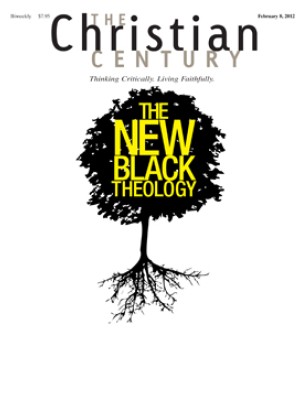In academia, comments about Islam remain risky
A recent spate of campus controversies involving professors who made
provocative statements about Muslims shows one of two things: a
decreasing tolerance for inflammatory speech, or how easy it is for
academics to get into trouble. Or perhaps a little bit of both.
The
incidents have forced university leaders into the uncomfortable role of
deciding the line between protecting free speech and confronting
bigotry. Caught in the middle are professors who say their hostility or
sympathy toward Islam often results in intimidation or silence.
Read our latest issue or browse back issues.
In
December, Harvard faculty canceled two summer courses taught by
Subramanian Swamy, an Indian political leader, over his newspaper column
titled "How to Wipe Out Islamic Terror" last July that advocated
demolishing some 300 Indian mosques and requiring Indian Muslims to
prove Hindu ancestry to be allowed to vote.
The article sparked
student protests, but though a Harvard spokeswoman called his remarks
"distressing," the school took no formal action.
However, when
Harvard professors met on December 6 to approve the 2012 summer course
catalogue, comparative religions professor Diana Eck moved to strike
Swamy's classes. Faculty approved the proposal, effectively taking away
Swamy's summer job.
Swamy, who in interviews denied that his
comments were hateful, has supporters, including free speech advocates
who argue that no matter how repugnant his views may be, he's entitled
to them, especially at a university where free speech is essential.
Eck
insists that she wasn't disputing Swamy's right to free speech, but
rather whether Harvard should employ a teacher who advocates violence
and bigotry.
"I don't think it is appropriate for an employee of
the university, charged with teaching our students, to openly advocate
the suspension of the human rights of millions of Indian citizens," said
Eck, who is an India scholar and director of Harvard's Pluralism
Project.
Mujeeb Khan, a doctoral candidate at the University of
California, Berkeley, who has written about anti-Muslim hate speech in
academia, agreed. "You have a right to say bigoted things, but you don't
have a right to expect people to employ you," Khan said.
The
Washington-based American Association of University Professors argues in
its statement on freedom of expression that no idea or statement can be
deemed so hateful as to warrant banning. "An institution of higher
learning fails to fulfill its mission if it asserts the power to
proscribe ideas—and racial or ethnic slurs, sexist epithets, or
homophobic insults almost always express ideas, however repugnant," the
1994 statement says.
The AAUP is opposed to university
administrators punishing professors, but it does condone professors
taking action against peers, as the Harvard faculty did with Swamy.
The
Harvard controversy follows a similar one in November at Tarrant County
College in Fort Worth, Texas, where adjunct professor Paul Derengowski
was forced to resign from his world religions class because his
Christian Apologetics Project website lists Islam as a cult. Two Muslim
students complained that he was biased against Islam.
Also in
November, students at Purdue University-Calumet in Hammond, Indiana,
launched protests demanding that the school fire political science
professor Maurice Eisenstein, who was accused of writing hateful
comments about Muslims on his Facebook page.
Critics, like Campus
Watch in Philadelphia, which monitors university curriculums, assert
that academia has a liberal bias that is both pro-Muslim and
anti-Christian and anti-Jewish. "The Middle East studies professorate is
almost monolithically leftist due to a systematic exclusion of those
with conservative or even moderately liberal views," the group says on
its website.
In a post-9/11 era, few inflammatory comments go
unnoticed. But some say the problem of anti-Muslim bias has been
particularly pronounced at Harvard. In 2010, Harvard established a
$650,000 research fund named for Martin Peretz, the longtime editor of
the New Republic, even after he wrote in a blog that "Muslim life is cheap."
At
the time, the university said "it is central to the mission of a
university to protect and affirm free speech, including the rights of
Dr. Peretz, as well as those who disagree with him, to express their
views."
Khan didn't think Peretz's comments were inflammatory
enough to merit punishment, but he didn't think they deserved accolades
either. "There is a problem at Harvard," Khan said. "Harvard has been
too indulgent of this kind of anti-Muslim bigotry and hate speech, which
I don't think they would have tolerated had it been directed at any
other group."
Akbar Ahmed, an Islamic studies professor at
American University, and Lawrence Rosen, an anthropologist at
Princeton, argued last year that universities have an "obligation" to
counter anti-Muslim sentiment.
"Not since the great era of civil-rights awareness in the 1960s," they wrote in the Chronicle of Higher Education, "has there been such a compelling need for involvement by the academic community on behalf of a minority population." —RNS





